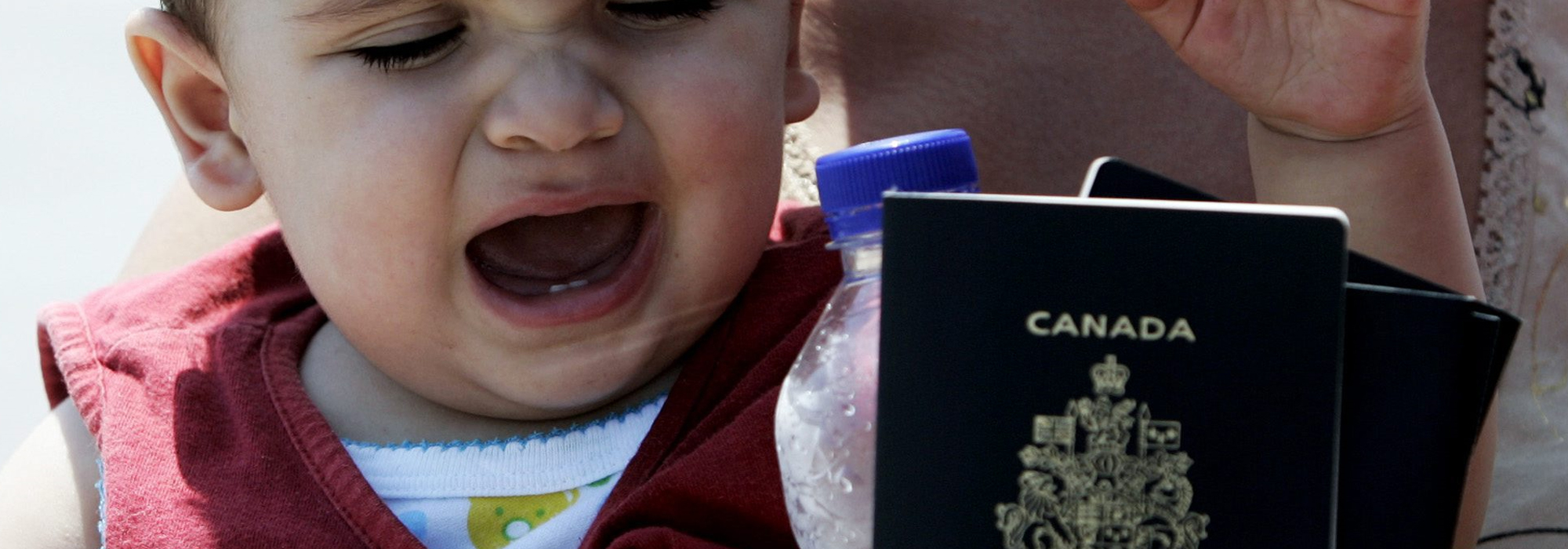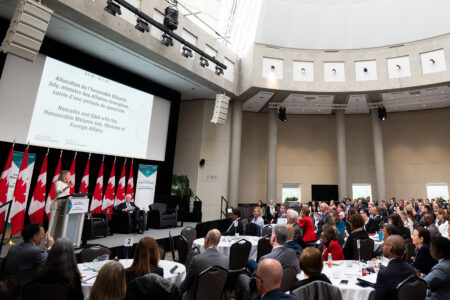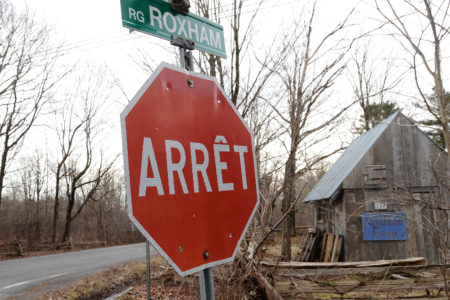
The phrase “a Canadian is a Canadian is a Canadian” was first used during the 2015 election, in the context of ensuring Canadian citizens convicted of crimes of treason or terrorism, whether they are born or naturalized Canadians, are treated equally. This is a restatement of the principal that naturalized Canadian citizens cannot be returned to their country of origin and may enter and leave Canada freely.
However, consideration of its application more widely, to consular services and voting rights for long-term expatriates (five years or more), suggests the following question: if a Canadian is a Canadian is a Canadian, and all Canadians therefore deserve equal protections under law, do all also always deserve the same benefits and privileges under the law? And do the actions of individual citizens affect the government’s obligations and responsibilities?
The arguments in favour of treating all Canadians equally are compelling in the cases of people accused or convicted of terror-related crimes, given that they could be single or dual citizens. As single nationals accused of such crimes are subject only to incarceration, adding banishment only for dual nationals, as the Conservative government did in its Bill C-24 (which most likely was not Charter compliant), meant that dual nationals were being subject to harsher punishment than single nationals.
The phrase “a Canadian is a Canadian is a Canadian” might not be apt when it is a question of the rights and privileges of long-term nonresidents and dual citizens, primarily when it comes to consular services and voting rights.
Canadian citizens in Canada pay taxes, access public services, can be summoned for jury duty and are subject to Canadian law. In contrast, for the most part, Canadians outside Canada do not pay tax, do not access public services, are not obliged to do jury duty, and are not subject to most Canadian laws. Some Canadians outside the country maintain strong connections to Canada, others less so. Given these differences, the phrase “a Canadian is a Canadian is a Canadian” might not be apt when it is a question of the rights and privileges of long-term nonresidents and dual citizens, primarily when it comes to consular services and voting rights.
The principles underlying the right to consular service are simple: all Canadian citizens are entitled to it whether they are Canadian-born or naturalized, regardless of their country of residence and no matter how long they have been absent from Canada. The right to consular assistance is not based upon whether a Canadian exercises judgement in his or her travels (although the advice of the Consular Services Charter is that Canadians “respect and obey a country’s local laws, religions and culture”).
This principal of entitlement to consular services has not always been straightforward in reality, and there are clearly instances where individuals or groups have pushed the limits of entitlement to consular service. A classic case of this is the costly evacuation of Lebanese Canadians in 2006 during an outbreak of war, many of whom had minimal, if any, ongoing connections with Canada. This prompted the then Conservative government to coin the not entirely inappropriate phrase, “Canadians of convenience,” and this led to the introduction of a first generation limit in passing citizenship on to a child born abroad.
Other cases involve dual nationals who enter their country of origin on that country’s passport (a requirement in some countries), or those who are only considered citizens of their country of origin by that country. Recent instances of this include the journalist Mohammed Fahmy, who was imprisoned in Egypt, the academic Kavous Seyed-Emami, killed in Iran, and the winery owners John Chang and Lan-Fed (Allison) Lu, detained because of a commercial dispute in China.
Even though the Canadian passport clearly includes the warning that Canadian citizenship may not be recognized in such situations, the obligation to provide consular assistance remains. And if the Canadian government is found to have neglected its consular responsibilities, it will likely have to pay compensation, as occurred in the cases of Maher Arar and Omar Kadr.
Another example of is that of “Jihadi Jack” (Jack Letts), an extremist in Iraq who is a Canadian-British dual national and a Canadian by descent but never lived in Canada. When he was imprisoned by Kurdish forces, the UK showed indifference to his plights and his parents sought Canada’s help for his release. Should the Canadian government assume responsibility for dual nationals in such cases, given that the prime responsibility would appear to lie with another government?
It could be argued that Canadians in such situations are demonstrating a weaker commitment to Canada, which could justify a proportionately lower level of support compared with other Canadians. In practice, however, public pressure also plays a role in the level of service provided in higher profile cases.
There are other thorny issues in the question of Canadian citizenship that relate to expatriate Canadians voting and holding office in foreign governments or defence forces. In such cases, some have argued that residency in foreign countries should be completely separated from Canadian citizenship.
If Bill C-76 comes into effect, Canada would shift from having the most restrictive to having one of the most permissive voting rights regimes for nonresidents.
Justin Trudeau’s government has shown in its recent electoral reform bill (C-76) that it supports removing the five-year residency requirement for voting, for any Canadian citizen “who, at any time before making the application, resided in Canada.” In other words, the government has acknowledged residency as a requirement for voting rights, but it has not specified a minimum period (three-years, as in the right to become a citizen, might be more appropriate). If this change comes into effect, Canada would shift from having the most restrictive to having one of the most permissive voting rights regimes for nonresidents.
Then there is the question of Canadians who return to their country of origin and have served in political office or otherwise play a political role. The most recent example of this is Miguna Miguna, a Kenyan-Canadian who participated in Kenyan politics, was arrested by the Kenyan government and deported back to Canada. An earlier case is that of Vaira Vīķe-Freiberga, who was Latvian-Canadian and served as president of Latvia.
Some have argued that political participation by dual-nationality Canadians could be positive, in that it “exports” democracy. However, assuming office does involve a formal oath to another country, and this raises questions about which oath would prevail in the event of a conflict (Vīķe-Freiberga renounced her Canadian citizenship when she assumed the presidency). Situations like this could create a demand for Canadian consular services when clearly the person making the demand is more engaged and interested in their country of origin than in Canada, as was the case with Miguna in Kenya.
The case of a Canadian who chooses to serve in a foreign military is somewhat different from that of one who holds political office in another country. If that other country is a NATO ally the issue of loyalties might be less important, given the treaty obligations. If the foreign country is not a non-NATO country, for example, Israel, the loyalty conflicts would be greater.
All of these situations demonstrate that there are differences in what “Canadian” means in terms of consular services and voting rights. In invoking that phrase, it is important to acknowledge the different situations and degree of connections that affect the extent of the government’s obligations. Residency and the level of political engagement matter, as do the individual choices that Canadians make. Saying “a Canadian is a Canadian is a Canadian” without qualification undermines the meaningfulness of Canadian citizenship.
Photo: LARNACA, Cyprus – A woman shows her family’s Canadian passports as she carries her crying son Joey Hasroune off the Blue Dawn ferry, that was chartered by the Canadian government to evacuate Canadian nationals from Lebanon, July 20, 2006. (CP PHOTO/Tom Hanson)
Do you have something to say about the article you just read? Be part of the Policy Options discussion, and send in your own submission. Here is a link on how to do it. | Souhaitez-vous réagir à cet article ? Joignez-vous aux débats d’Options politiques et soumettez-nous votre texte en suivant ces directives.








